
First People’s Summit for Korea draws activists from across US, South Korea
Hundreds of peace, labor, environmental, and feminist activists from the US, South Korea and Europe joined together to discuss the threats the Trump administration poses to the Korean Peninsula.
[New York, NY] – From July 25th – 26th, over 500 participants from 30 US states, South Korea, and Europe converged at Riverside Church for the first People’s Summit for Korea: Towards National Liberation. Representatives from 19 South Korean trade unions, political parties, peace organizations, and civil society groups traveled to New York City to participate in the People’s Summit. Members of the South Korean delegation included representatives of 19 South Korean civil society, peace, and labor groups, including the Korean Confederation of Trade Unions, which represents over a million workers, and the Korean Alliance for Progressive Movement, a coalition of more than 80 social organizations dedicated to workers’ rights and peace.
The People’s Summit, convened by 10 US peace groups and Korean American community organizations, was called in response to the gradual escalation of US military activity on the Korean peninsula since the breakdown of negotiations between Washington and Pyongyang in 2019. Since 2022, US and South Korean joint military exercises have drastically escalated in frequency and intensity. According to independent South Korean journalist Jang Chang-jun, US Forces Korea conducted 200 days of military drills in Korea in 2023, and 275 days of drills in 2024.
Over two days of programming, activists at the People’s Summit shared insights and lessons from progressive struggles on the Korean Peninsula to remove US military bases, peacefully conclude the Korean War, and advance democratic rights in the face of recently ousted South Korean President Yoon Seok Yul’s martial law attempt last December. US-based activists shared their efforts to oppose the expansion of the US military budget, constrain the power of the executive, and stop the Trump administration’s attacks on their democratic rights.
Since former President Yoon’s attempt to declare martial law on December 3, 2024, concerns over the role of US intervention in South Korea’s politics have grown. A special independent prosecutor appointed by the newly elected Lee Jae Myung government is currently investigating allegations that the Yoon administration attempted to trigger a “limited war” with North Korea in October 2024 by flying military drones over Pyongyang. Since the martial law attempt, a number of key figures in the US far right, including Steve Bannon, have attempted to launder Yoon’s coup by peddling unsubstantiated conspiracy theories alleging election fraud and covert Chinese influence.
More recently, Trump’s tariff threats against South Korea have led to an increase in anti-US sentiment. South Korea’s products are scheduled to receive a 25% tariff beginning on August 1, and other key export industries like automobiles, steel, and aluminum are being targeted with sector-based tariffs. The Trump administration has expressed its desire to increase South Korea’s annual payments to the US under the Special Measures Agreement from $1.13 to $10 billion a year. Secretary of Defense Pete Hegseth has also called for South Korea to raise its annual defense spending to 5% of GDP, which would be about $87 billion. Other topics of concern include opening South Korea’s market to rice imports from the US, and purchases of US liquid natural gas.
Workers at General Motors factories in South Korea have engaged in partial strikes to protest the possibility of plant closures resulting from Trump’s tariffs. Civic organizations have also held demonstrations at the US embassy in Seoul and in other South Korean cities to protest the tariffs and Trump’s demands for increased South Korean defense spending and Special Measures Agreement payments. The Lee and Trump governments are currently engaged in negotiations to reach a resolution.
Miyeon Jang, an organizer with Nodutdol for Korean Community Development said, “The People’s Summit for Korea comes at a critical time in the US-ROK relationship. For decades, the people of South Korea have dealt with the harsh realities of foreign military occupation. Now, Trump is using mafia-style tactics to shake down South Korean taxpayers to the benefit of US weapons corporations, Big Oil, and agribusiness. As Koreans in the US, we want relations between our two countries to be based in mutual respect and dignity.”
Son Mihee, Co-Chair of the Korean Alliance for Progressive Movement, a coalition of over 80 progressive civil society groups in South Korea, said, “The time is now for the Korean people to protect our independent rights against imperialist domination and exploitation. The People’s Summit for Korea is an important starting point to build an anti-imperialist movement to transform Korea and the world.”
Paul Liem of the Korea Policy Institute said, “At a time when U.S. imperialism threatens peace everywhere, the People’s Summit for Korea was a groundbreaking and necessary event. This conference, demanding ‘U.S. out of everywhere,’ made a powerful intergenerational and internationalist call for the Korean diaspora to struggle for Korea’s national liberation in solidarity with the rising anti-imperialist struggles against U.S. hegemony and militarism taking place across the Global South. The Korea Policy Institute was profoundly moved and inspired by being part of this and looks forward to our continued work with all these activists.”
Press Inquiries: Ju-Hyun Park – media@nodutdol.org
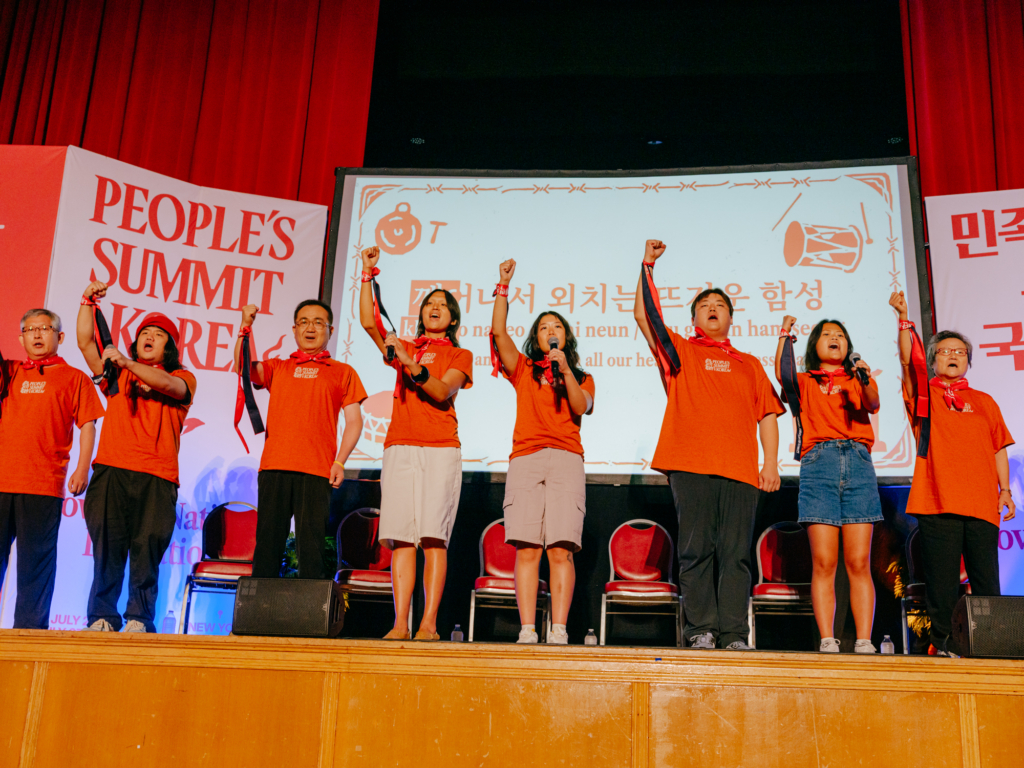
Activists from South Korea and the US take the stage together at the People’s Summit for Korea. July 25, New York, NY
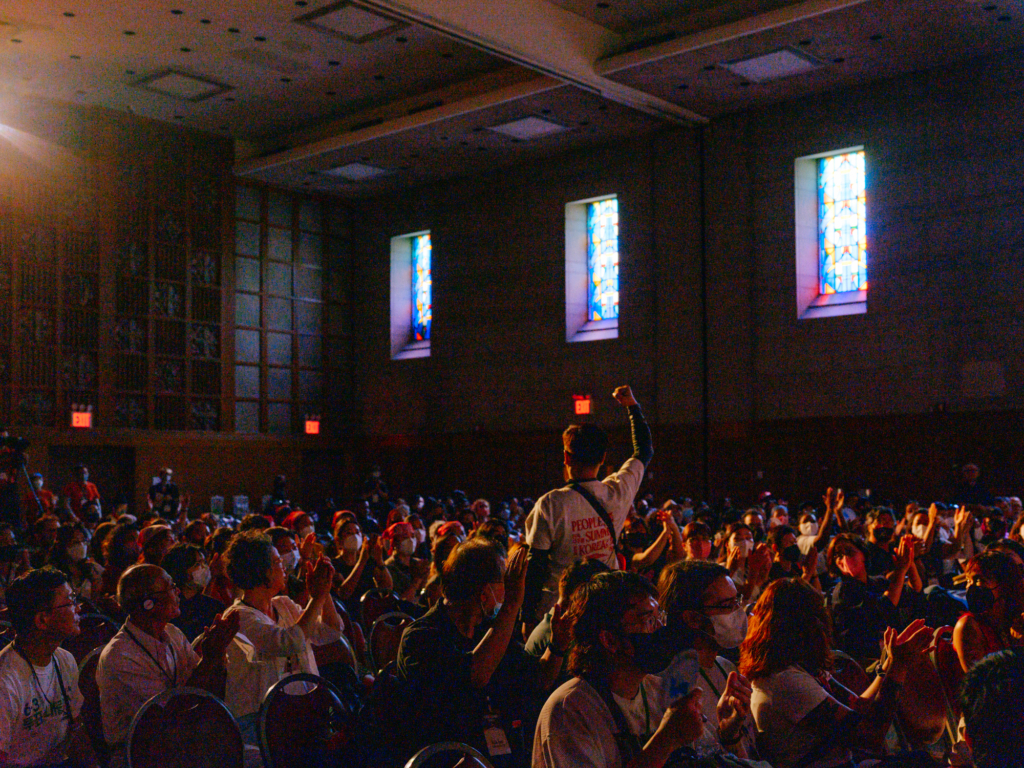
A member of the South Korean delegation greets the crowd at the People’s Summit for Korea. July 25, New York, NY
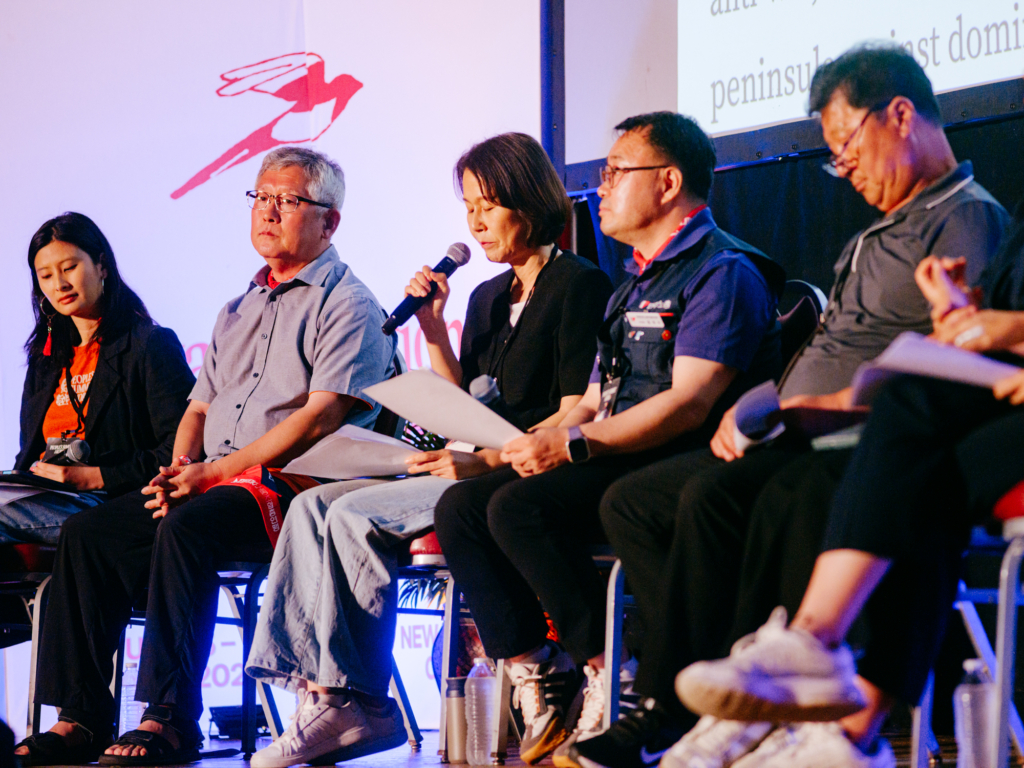
Representatives from South Korean peace organizations and labor unions present on the movement against US military bases at the People’s Summit for Korea. July 26, New York, NY
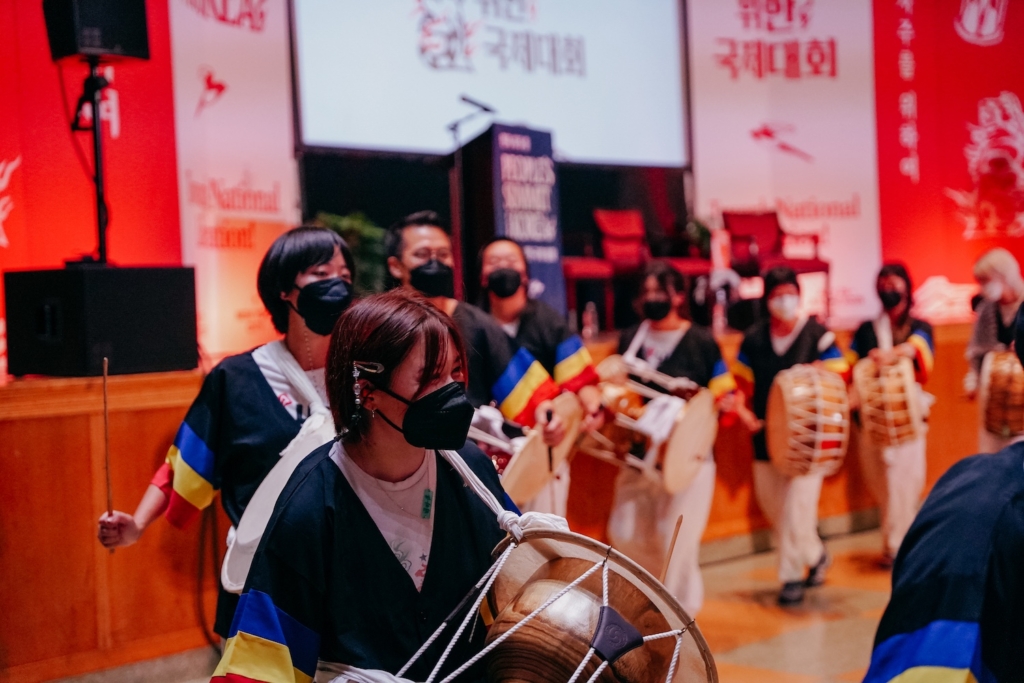
A traditional pungmul or Korean drumming crew performs at the People’s Summit for Korea. July 25, New York, NY
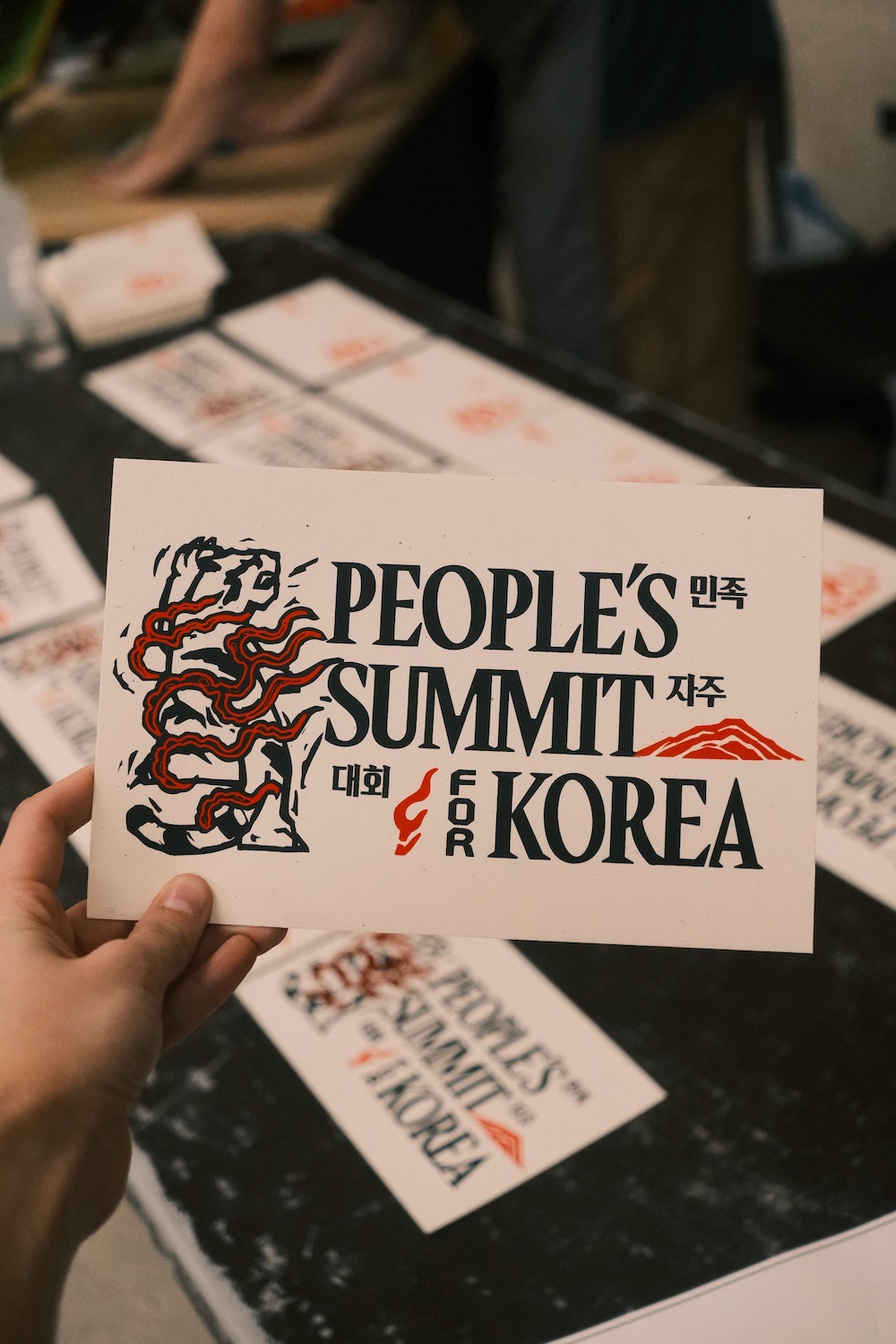
A display of artwork for the People’s Summit for Korea. July 25, New York, NY
